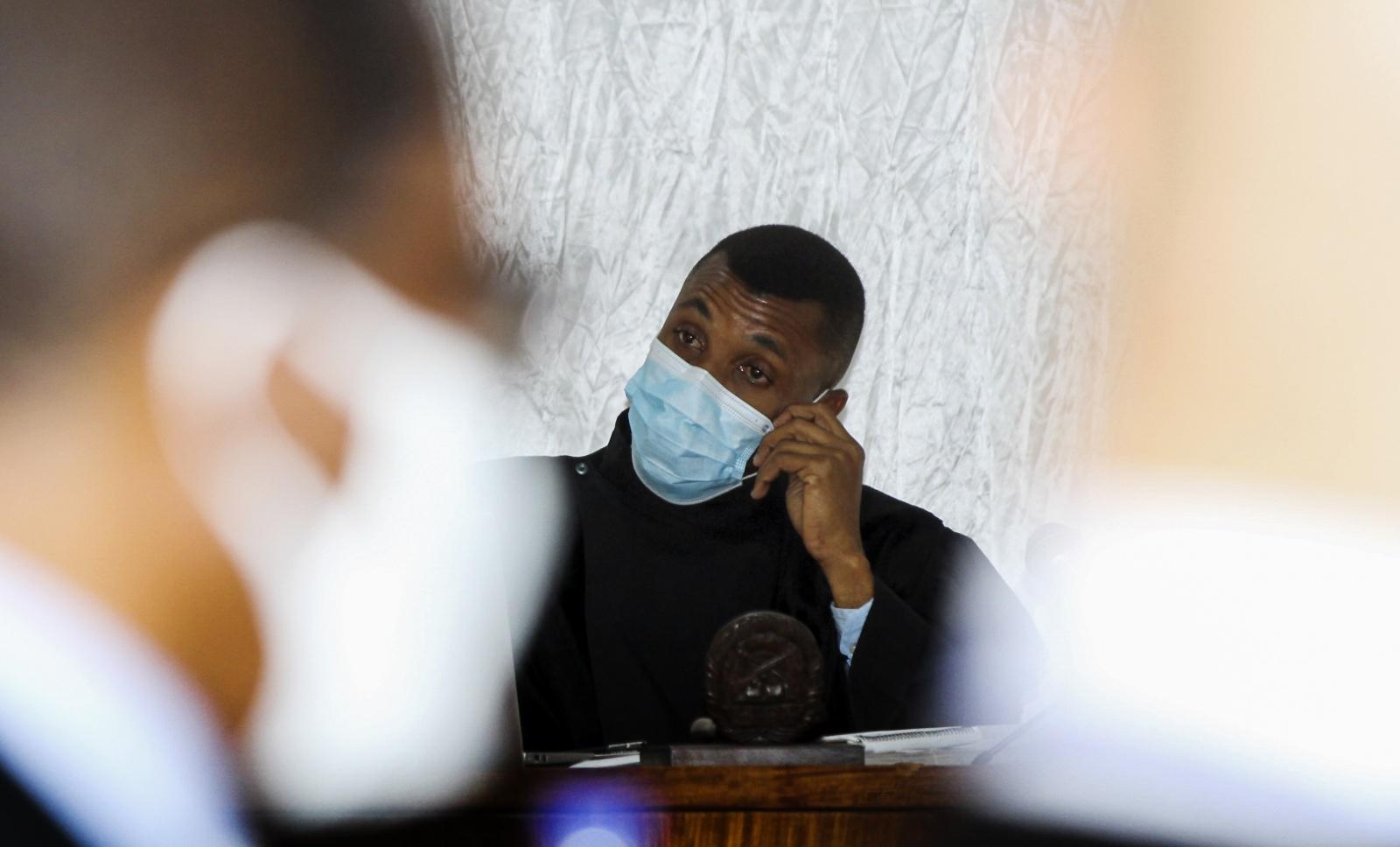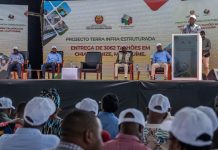Africa-Press – Mozambique. Yet another senior Mozambican security official, giving evidence in the trial of 19 people accused of crimes linked with the country’s “hidden debts”, admitted on Friday that he had signed documents concerning companies that he knew nothing about,
Lucas Ponderane was the General Director of GIPS, a company set up by the State Security and Intelligence Service (SISE). It was through GIPS that SISE controlled the three fraudulent companies Proindicus, Ematum (Mozambican Tuna Company) and MAM (Mozambique Asset Management). GIPS held 98 per cent of the shares in MAM, 50 per cent in Proindicus and 33 per cent in Ematum.
Ponderane told the Maputo City Court that, despite the preponderant GIPS position in the shareholdings of the three companies, GIPS had never been consulted on anything to do with the companies. His role was restricted to signing documents “on higher orders”.
He said that no real general meeting of GIPS was held before taking the decision to subscribe to the equity capital of Proindicus. Instead a set of minutes appeared, and he was told to sign them. This was justified on the grounds of urgency.
The same procedure was followed with MAM – Ponderane signed minutes of a meeting which never happened. As for Ematum, Ponderane was out of the country when the public deed establishing this company was signed, so he was spared the humiliation of a third set of fake minutes.
Despite GIPS’ apparent dominance of the three companies, in reality it did not pay a penny towards the capital of any of them. “There was never any subscription to equity capital”, Ponderane said, The GIPS paid-up share capital was just a polite fiction.
There was no discussion in GIPS of viability studies for any of the companies If there was any viability study for Proindicus, he never saw it, said Ponderane. Nor did he see the supply contract with the Abu Dhabi-based group, Privinvest, or the financial contract under which the bank Credit Suisse lent sums to Proindicus which eventually amounted to 622 million dollars. Those contracts were ready before Proindicus even existed in terms of Mozambican company law.
To many of the questions from prosecutor Sheila Marrengula, Ponderane answered with the one word “no”, or “none”.
Were there any discussions with the other shareholders in Ematum before the company was set up? No. Did you know whether there was any security component to Ematum? No. Did you see the supply and finance contracts for MAM? No.
Without GIPS subscribing its equity capital to MAM, how did Ponderane think the company could function. Here Ponderane allowed himself a few more words: “I wasn’t involved in the concept of MAM, so I can’t answer the question”, he said.
When the Mozambique Bar Association (OAM), which is assisting the prosecution, asked who GIPS was accountable to, Ponderane said decisions about the companies “came from a higher authority” – by which he meant SISE General Director, Gregorio Leao, one of the accused in the current trial.
Did he think it normal to sign documents concerning matters he knew nothing about? “The instructions came from higher up, and I had no way to deny them”, Ponderane said. But, if he was in doubt, he could always ring up Leao.
“Are you obliged to obey illegal instructions?”, asked OAM representative Flavio Menete. “I can’t answer that”, replied Ponderane. But he should have been able to – for the Mozambican Constitution states that any citizen has the right not to accept illegal orders.
Asked whether GIPS had discussed the situation of Proindicus, Ematum and MAM at the legally mandatory annual general meetings, Ponderane said “we didn’t have financial information from these companies, and it seems that none of them worked”.
A second witness, Estevao Mwiya, a former director of Monte Binga, a company owned by the Defence Ministry which held the other 50 per cent of the shares in Proindicus, said he had also been kept in the dark about the companies.
He said the chairperson of Monte Binga, Victor Bernardo (who was also Deputy Minister of Planning and Development) told him in December 2012 that he had instructions from above that Monte Binga must subscribe to the Proindicus equity capital. But, like GIPS, Monte Binga did not provide any real money for its half of Proindicus. Signing up to Proindicus was a fait accompli and was not discussed by the Monte Binga board.
Was any viability study held before Monte Binga acquired its stake in Proindicus?, asked Marrengula.
“There was no viability study”, Mwiya replied. The Monte Binga board knew that Proindicus was a brainchild of SISE, “but we had no access to any study made by SISE. Everything had been done in advance”.
Mwiya left his management position in Monte Binga in 2013, and so had no input into either Ematum or MAM. “I only heard about Ematum and MAM from the press”, he said, “when the question of the hidden debts erupted” (in April 2016).
The trial has now adjourned until Monday.
For More News And Analysis About Mozambique Follow Africa-Press






